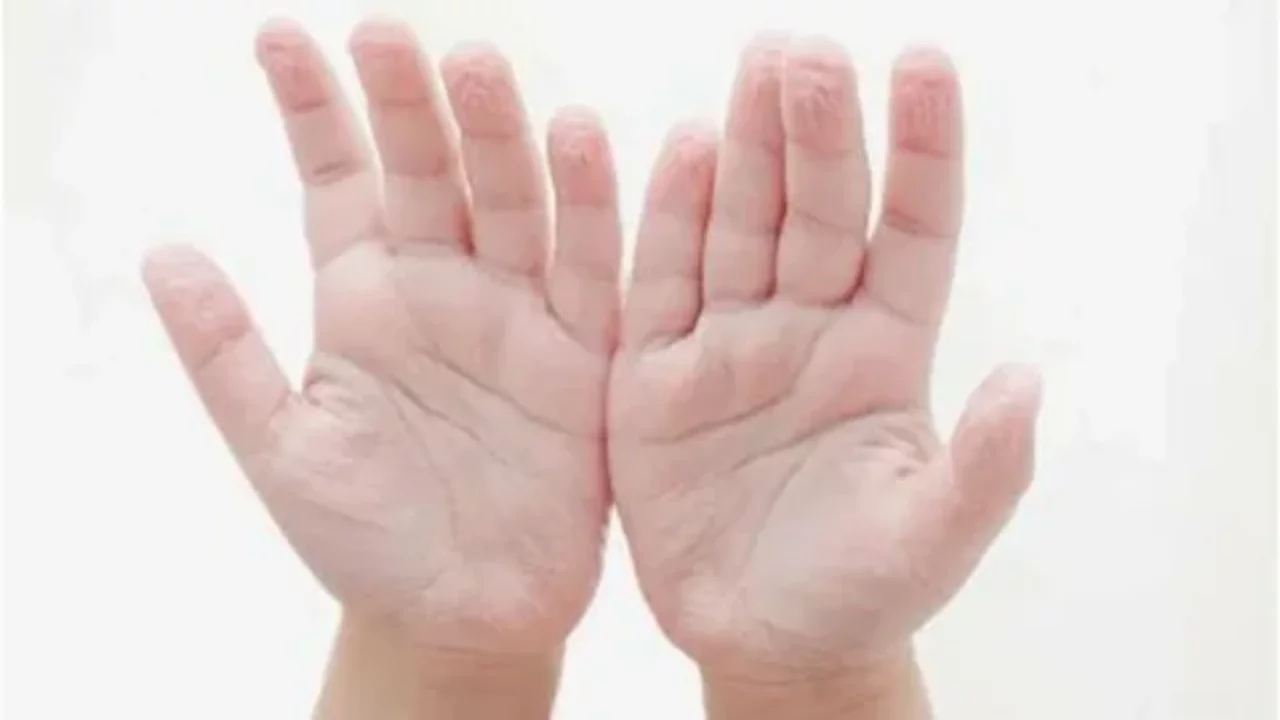Pruney fingers in water: Secrets behind a common phenomenon

You’ve probably noticed that after spending a few minutes in a bath or pool, the skin on your fingers becomes wrinkled. While this is familiar, ordinary, and often ignored, it may actually hide important information about our evolutionary past and health.
Surprisingly, only the skin on the fingers and toes wrinkles due to water exposure. There are no such changes on the wrists, thighs, or face. According to scientific studies, this is not simply a result of water absorption (osmosis), but an active physiological process controlled by the nervous system.
If the median nerve — one of the hand’s nerves — is damaged, the fingers do not wrinkle in water. This indicates the process is controlled by the autonomic nervous system (specifically, the sympathetic system).
According to scientific experiments, when our fingers are submerged, the sweat glands in the skin open, leading to changes in salt balance. This activates nerve fibers, causing blood vessels to constrict. The volume of the inner skin layer reduces, pulling the outer layer inward — resulting in wrinkles.
In addition, osmotic effects cause swelling in the outer skin layer, but this alone is not enough to create wrinkles. However, the combination of inner layer contraction and outer layer swelling creates fine wrinkles.
Studies show that wrinkled fingers improve grip in wet environments. In a 2020 experiment at the London Science Museum, it was found that more force is needed to grip objects with wet but unwrinkled fingers. Wrinkled fingers increase friction and help grip objects more securely.
Another study from Newcastle University found that participants could move underwater objects 12% faster with wet and wrinkled fingers. This confirms that the wrinkles provide mechanical advantage.
This simple physiological response also reveals much about health. For instance:
- Diabetic patients may not wrinkle sufficiently in water.
- In cystic fibrosis, wrinkling may be excessive.
- In heart failure, wrinkling slows down.
- In Parkinson’s disease, the fingers of each hand may wrinkle differently — indicating dysfunction in the sympathetic nervous system.
Another curious observation: women’s fingers wrinkle more slowly than men’s. This is not yet fully explained, but may be related to sex hormones.
If wrinkles help in wet conditions and don’t harm in dry ones, why don’t they stay permanently? This question remains unanswered, but one reason might be sensation. Wrinkled skin feels odd when gripping, which may cause discomfort. Psychologically too, nerve placement changes may alter perception. Read “Zamin” on Telegram!
Ctrl
Enter
Found a mistake?
Select the phrase and press Ctrl+Enter 

















